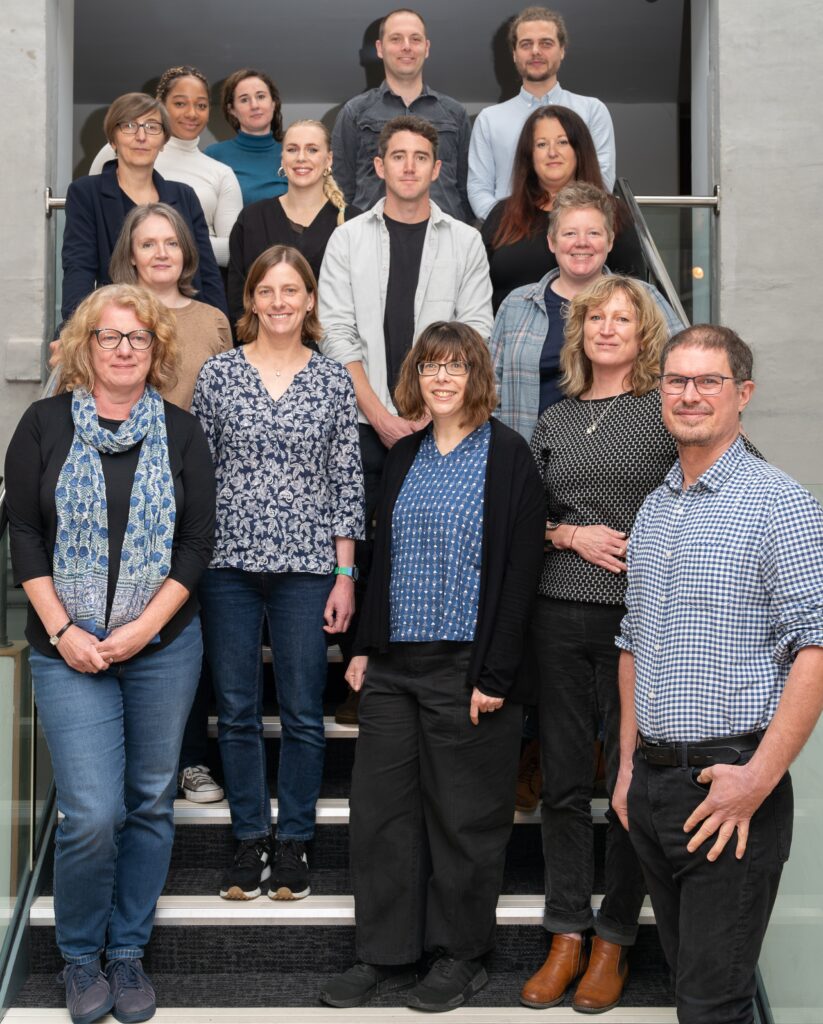Abigail Hill considers how digital information can enrich longitudinal population studies
I’ve always been interested in how researchers can harness smart data, such as loyalty card data or mobile phone app usage, to observe human interactions. Finding a public benefit for a dataset originally designed for commercial or other purposes is particularly satisfying. I enjoy hearing from researchers who have built fruitful relationships with companies or local authorities. These partnerships are valuable for social science research and benefit the public.
My own research at the Consumer Data Research Centre (CDRC) demonstrated this potential. Using commercially collected shop location data, we tracked the impact of lockdown restrictions on Britain’s high streets by monitoring shop composition, vacancy rates and turnover of new shops. Studies like this illustrate the value of working with local government to reflect the changing character of communities. This approach enabled me to inform local policy during my PhD work with the London borough of Camden.
UK Longitudinal Linkage Collaboration
I’ve now joined the UK Longitudinal Linkage Collaboration (UK LLC), the national Trusted Research Environment (TRE) for longitudinal research.
UK LLC is a partnership of the Universities of Bristol and Edinburgh, infrastructure specialists at SeRP and leading longitudinal studies.
We help longitudinal studies teams connect their participants’ routine health, socio-economic and environmental records.
Our team also provides researchers with access to integrated and linked study data via one application process.

My role focuses on linking emerging data sources with longitudinal population studies.
Currently, I’m exploring the potential for adding household-level data, such as Energy Performance Certificates, while preserving privacy. HDR UK funds the project as part of the Social and Environmental Determinants of Health Research Driver Programme.
How can smart data help with longitudinal population studies?
At the UK LLC, we view smart data as insightful and actionable information generated through user engagement with digital systems.
While traditional research relies on self-reported methods, smart data provides detailed, recorded information about health and socio-economic indicators. Crucially, it offers an opportunity to inform strategies to understand and potentially address self-reporting biases. It enables researchers to gather information that is otherwise challenging to collect directly from participants.
Smart data does not replace the need or value of self-reported information, but exciting opportunities do emerge when you triangulate it with study data and routine records.
Through Smart Data Research UK funding, we are working with study participants to develop secure methods for linking loyalty card data with longitudinal population studies.
What are the challenges of smart data research?
Smart data is often scrutinised for its quality and coverage. Issues that can arise include obtaining and linking records from different commercial providers. There are potential omissions. Linkage errors. Population bias. There can be impediments to developing commercial linkages. A significant concern is maintaining the trust of participants (the public) while establishing the acceptability of smart data use. Our research will explore these challenges.
How do we protect privacy and maintain trust?
UK LLC adopts the ‘Five Safes‘ framework. All data is held, curated and analysed in a TRE, running on SeRP, a Trusted Research Environment that allows data to be stored and linked securely in a controlled environment.
UK LLC has also developed a bespoke governance framework optimised for longitudinal research, co-designed and run by the longitudinal community.
We use a decision-making framework that acknowledges that anonymisation is a heavily context-dependent process. Only by considering both the data and its ‘environment’ as a total system can we come to a well-informed decision about the necessary controls.
Working with geospatial data
An early opportunity for UK LLC is linking smart data to longitudinal research with geospatial data. Many openly available datasets provide valuable indicators about participants’ built and social environment. One example is Professor Mark Green’s work at CDRC, developing the Access to Health Assets and Hazards index. The dataset takes into account the retail environment, health services, green and blue spaces and air quality.
The index also includes commercially sourced ‘smart’ data that is frequently updated, allowing researchers to track neighbourhood changes over time, such as the closure of leisure centres and the opening of fast-food outlets or betting shops.
Working in partnership and sharing knowledge
It’s an exciting prospect to think about how smart data can be used to give new perspectives to longitudinal population studies. UK LLC is keen to explore these opportunities with our partner studies, the emerging smart data community, other data providers and researchers.
Central to this work is maintaining public trust through co-creation and public involvement.
Further reading
I highly recommend exploring the Access to Healthy Assets and Hazards dataset using CDRC’s interactive map.
Abigail Hill is Research Manager (data) at the University of Bristol
